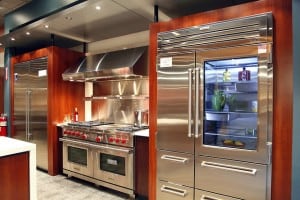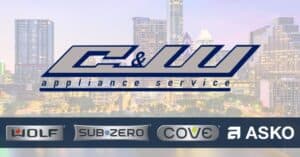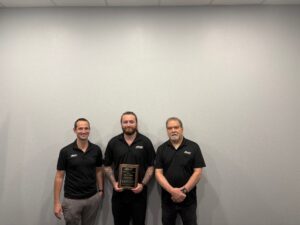
With today’s technology, your major appliances are several steps ahead of the mustard yellow washer. They are also far ahead of the avocado green refrigerator of the early 1980s.
The next time you turn on your appliance, forego the mother-in-law advice, and remember these modern appliance tips:
WASHING MACHINE
At one time, a cold-water cycle truly didn’t thoroughly clean clothes. But today’s washing machine models are designed to run more efficiently and effectively. A cold-water cycle can effectively clean an entire load of clothes – including whites. Using cold water is not only effective but also cost-saving.
Nearly 90 percent of a washer’s energy consumption comes from heating the water. This applies to both individual washers and washer and dryer sets. With regular maintenance, you can extend the life of your machine and reduce wear and tear on delicate fabrics.
DISHWASHER
Past guidelines instructed many people to rinse dishes before placing them in the dishwasher. At one time, it was a necessary first step to ensure clean dishes, but not anymore. Many modern dishwashers feature turbidity sensors to detect suspended particles in the water.
Clean dishes limit the suspended particles and, in effect, cause the dishwasher to run a shorter, colder cycle. Keeping the spray arms clear and practicing kitchen appliance maintenance will also improve cleaning results over time.
REFRIGERATOR
When purchasing a new refrigerator, it is important to consider how to handle the old unit. Using an older refrigerator as a secondary appliance for outdoor storage may not be cost-effective. A refrigerator over 10 years old can cost more to run than a new model. Replacing an old refrigerator with an Energy Star model can save $200–$1,100 in energy costs.
The Energy Star seal and proven energy efficiency distinguish all Sub-Zero refrigerators. If you have a French door refrigerator, a sub zero refrigerator repair Dallas technician from C&W Appliance Service can help. They will keep it in top shape. Our team handles refrigerator repair for many types of appliance, including ice makers and stainless steel units.
RANGE VENTILATION
Achieving the best brisket requires searing the meat at a high temperature. And in some kitchens, that also means blaring fire alarms from ensuing smoke. Turn on the ventilation about 10 minutes before you begin cooking. Maintain ventilation for at least five minutes after cooking is complete.
Some vents, like the Wolf appliances Low-Profile Island Hood, have a heat sentry feature that senses heat. This feature can automatically turn on the unit and adjust blower speed.
If you’re not sure whether your kitchen appliance has this feature, check your product specifications. You can also contact a certified appliance service provider for guidance. We also handle wolf oven repair service near you and across Texas region.
The best rule of thumb for your household appliances is to work with your certified appliance service provider. After all, who knows kitchen appliance maintenance better than the pros? With more than 60 years of exceptional appliance repair service to its North Texas and San Antonio customers, C&W Appliance Service can answer your questions. They also provide insight on appliance repair, regular maintenance, and the care of small appliances and major appliances.
We service a wide range of appliance brands, always focusing on customer satisfaction. Our skilled repair technicians deliver high-quality appliance repair in Dallas and surrounding areas. From wolf appliances to sub-zero refrigerator repair Dallas, we keep your appliances performing at their best.
C&W is the only factory certified Sub-Zero & Wolf appliance repair service provider in Dallas, Fort Worth, and San Antonio. To schedule your service, please contact us at (855) 358-1496.



